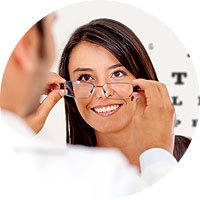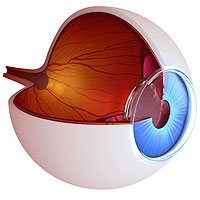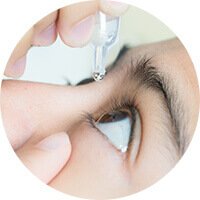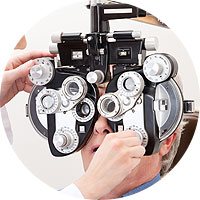
LASIK excels at making your vision crystal clear and reducing your dependence on glasses or contacts. But that’s all it can do.
The procedure is not designed to treat any other potential eye problems you have. Depending on the severity of them, allergies may interfere with your eligibility to receive LASIK. Keep reading to learn more about what happens if you get LASIK with allergies!
How LASIK Works
LASIK corrects nearsightedness, farsightedness, and astigmatism by reshaping your cornea. A cornea that is too flat, pointed, or misshapen will result in light not focusing properly.
This means light may be too far from, too close to, or on many points of the retina.
During LASIK, the cornea is not molded or sculpted. Instead, the procedure is a bit more nuanced.
To adjust the focusing properties of the cornea, small amounts of corneal tissue must be taken away from very specific parts of it. This tissue is also removed from the middle layer of the cornea. The middle layer is the thickest layer of the cornea.
To get to this middle layer, the surgeon creates a flap at the top. The flap is then lifted up using a secondary laser. Corneal tissue is then removed and discarded.
The amount of tissue removed is pre-determined using computers. This lowers the chance of any human error occurring.
Using computer software and lasers is why LASIK is so safe and precise. After the surgeon finishes reshaping the cornea, they will close the flap.
This does not need any stitches or glue. It will instead reattach itself over the next several weeks.
Is LASIK Painful?
Although it sounds painful, LASIK will not cause you any pain. Before the procedure, your surgeon will use numbing eye drops.
These drops ensure that you never feel any pain during LASIK. After the procedure is over, you may feel some slight pain.
This is normal as the numbing eye drops wear off. This usually goes away after a few days to a week during recovery after having LASIK.
Set up a LASIK consultation at Eyecare Specialists to find out if you’re a candidate.
Can I Get LASIK If I Have Allergies?
In most cases, patients with allergies can get LASIK. Unless you have very severe symptoms, allergy sufferers can be good LASIK candidates.
It’s important to keep in mind that when you get LASIK matters. For the best results, you shouldn’t get LASIK in the spring or right before allergy season hits.
At the very least, you should get LASIK a month or more before the allergy season begins. You need about a month to fully recover after having LASIK.
The good news is that LASIK can make your allergy symptoms less debilitating. This is especially true for allergy sufferers that also wear contact lenses.
Wearing contact lenses and having allergies is a very bad combination. During allergy season, pollen can get everywhere, including your clothes and your hands.
You have to touch your eyes on a regular basis when you put in and take out your contact lenses. There’s no guarantee that when you touch your eyes throughout the day that you won’t get pollen in your eyes at some point.
If this happens, your eyes can become extremely irritated. This is something that you risk every time you put in and take out your contact lenses.
For those with allergies that affect their eyes, it makes more sense to get LASIK so they no longer have to touch their eyes as much. If you’re concerned that your allergy symptoms will get in your way of being a good LASIK candidate, talk to your eye doctor.
Tired of dealing with contact lenses during allergy season? Find out if you’re a LASIK candidate by scheduling a LASIK consultation at Eye Care Specialists in Kingston, PA!

















